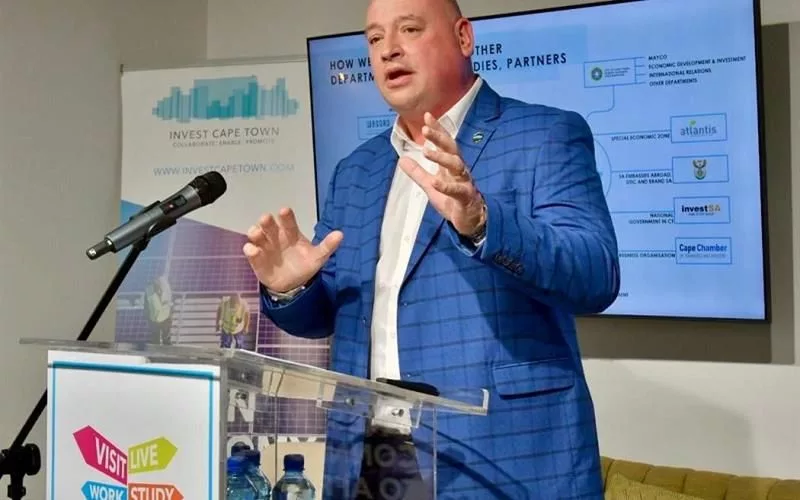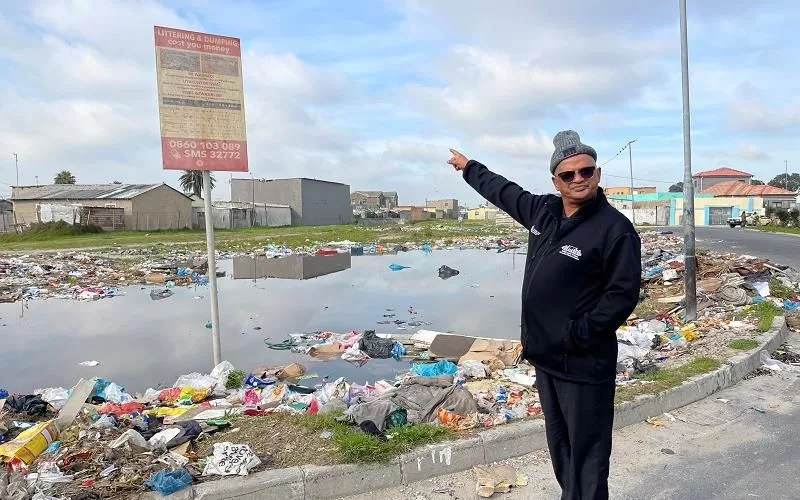Cape Town’s economic growth is boosted by a network of 11 Special Purpose Vehicles (SPVs), each representing a different industry sector. These collaborations have resulted in a combined economic impact of R45 billion and the creation of 50,000 jobs in the last five years. The SPVs act as accelerators that enhance workforce skills, generate employment, and foster economic growth, reshaping the future of Cape Town. The city’s comprehensive support for these collaborations aims to cultivate a more business-conducive environment and empower individuals.
How is Cape Town’s economic growth supported by Special Purpose Vehicles (SPVs)?
Cape Town’s economic growth is supported by 11 Special Purpose Vehicles (SPVs), each representing a unique industry sector. These strategic collaborations enhance workforce skills, generate employment, and foster economic growth, resulting in a combined economic impact of R45 billion and 50,000 jobs created in the last five years. The SPVs act as accelerators that strengthen Cape Town’s economy and reshape its future.
South Africa’s jewel city, Cape Town, radiates an unparalleled economic energy. This growth pulse is generated from an intricate web of alliances between the City and Special Purpose Vehicles (SPVs). The proclamation of this forward-thinking initiative originated from Alderman James Vos, the City’s Mayoral Committee Member for Economic Advancement, during a recent event championed by the City’s Department of Economic Development and Investment.
Dynamic Economy Through Strategic Collaborations
Cape Town’s flourishing economic landscape is a product of the interdependent ties with 11 SPVs, each symbolizing a unique industry sector. The scope of these sectors ranges from technology to apparel, to call centres. The SPVs hold a crucial role in enhancing workforce skills, generating employment, and fostering economic growth.
The evidence of success is undeniably clear. In the last five years, the combined economic impact of these collaborations has escalated to a staggering R45 billion, furnishing employment avenues for 50,000 residents of Cape Town. This statistic stands as a tribute to the effectiveness of strategic alliances in nurturing economic growth in the city.
Alderman Vos aptly encapsulates the essential ethos of these collaborations with the mantra “People, Places, and Products”. These are the foundational pillars upon which the City’s efforts to empower individuals, endorse diverse business environments, and highlight the finest products Cape Town has to offer, are built. The SPVs act as the accelerators that enhance workforce preparedness, provoke innovation, and allure fresh investments, all in an effort to strengthen Cape Town’s economy.
Sector-wise Contributions of SPVs
Now, let’s delve into the specific contributions of the city’s SPV partners in each industry:
-
Marine Manufacturing and Boat Building (Blue Cape):
As a global frontrunner in offshore catamaran production, Cape Town exports a ship a day, enhancing employment opportunities and fueling innovation. -
Technology (UVU Africa):
UVU Africa encourages tech start-ups whilst improving digital infrastructure, consequently developing the tech industry. -
Business Process Outsourcing (CapeBPO Call Centres):
CapeBPO generated over 10,000 jobs last year alone, establishing Cape Town as a powerful contender in the call centre industry. -
Investment Promotion (Wesgro):
Wesgro plays a pivotal role in attracting investments and broadening market exposure. -
Air Access and Cruise:
This industry boosts connectivity and cruise tourism, creating new prospects for travel and commerce. -
Conferencing Bureau:
The Conferencing Bureau advocates for Cape Town as the preferred destination for conferences, enhancing business tourism. -
Craft Design (Craft Design Institute):
Supporting local talent and endorsing distinctive designs, the Craft Design Institute adds value to the city’s creative economy. -
Clothing Production (Cape Clothing and Textile Cluster):
This SPV propels innovation and sustainability within the clothing industry. -
Green Technology (Green Cape):
Green Cape leads the path towards sustainable development and green technology, setting the stage for a more sustainable future. -
Greater Tygerberg Partnership (GTP):
GTP, with its focus on placemaking initiatives, elevates Bellville as an attractive place to live, work, and conduct business. -
Western Cape Economic Development Partnership (WCEDP):
The WCEDP uplifts the performance of the city and regional economic development system, supporting the OneCape2040 goal of building a resilient, inclusive, and competitive city and region.
Comprehensive Support and Future Vision
Alderman Vos and his department have vowed staunch support for the SPVs, with each project meticulously evaluated and designed to suit investor preferences and workforce necessities within their respective sectors. Coupled with comprehensive initiatives like the Ease of Doing Business Index, SMME support programmes, and streamlined property transactions, these measures aim to cultivate a more business-conducive environment.
As Cape Town continues to thrive, every business growth, every job created, and every individual upskilled serves as a testament to the city’s collective investment. The effort is ongoing, with all stakeholders working in unison to enhance skills and expand Cape Town’s economy. The city’s alliances with SPVs are not merely propelling economic development but also reshaping it, moulding the future of Cape Town one partnership at a time.
FAQ
1. What are Special Purpose Vehicles (SPVs) in Cape Town?
Special Purpose Vehicles (SPVs) are strategic collaborations between the City of Cape Town and different industry sectors. There are 11 SPVs, each representing a unique industry, ranging from marine manufacturing to green technology.
2. How do the SPVs support Cape Town’s economic growth?
The SPVs enhance workforce skills, generate employment, and foster economic growth, resulting in a combined economic impact of R45 billion and the creation of 50,000 jobs in the last five years. They act as accelerators that strengthen Cape Town’s economy and reshape its future.
3. What are some industry sectors represented by SPVs in Cape Town?
The 11 industry sectors represented by SPVs in Cape Town include marine manufacturing and boat building, technology, business process outsourcing, investment promotion, air access and cruise, conferencing bureau, craft design, clothing production, green technology, Greater Tygerberg Partnership, and Western Cape Economic Development Partnership.
4. How does Cape Town support the SPVs?
The City of Cape Town provides comprehensive support to the SPVs, with each project meticulously evaluated and designed to suit investor preferences and workforce necessities within their respective sectors. The city also offers initiatives like the Ease of Doing Business Index, SMME support programmes, and streamlined property transactions to cultivate a more business-conducive environment.
5. What is the economic impact of the SPVs in Cape Town?
In the last five years, the combined economic impact of the SPVs in Cape Town has escalated to a staggering R45 billion, furnishing employment avenues for 50,000 residents of Cape Town.
6. What is the future vision for the SPVs in Cape Town?
The City of Cape Town aims to continue supporting the SPVs and expanding the economy, with all stakeholders working in unison to enhance skills and reshape Cape Town’s future one partnership at a time. The city’s alliances with SPVs are not merely propelling economic development but also reshaping it, moulding the future of Cape Town.












